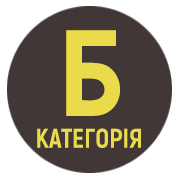SHEVCHENKO ALLUSIONS AND QUOTATIONS IN THE NOVEL “CLOUDS” BY IVAN NECHUI-LEVYTSKYI: INTERTEXTUALITY AS A MARKER OF NATIONAL IDENTITY
DOI:
https://doi.org/10.32782/folium/2025.7.31Keywords:
Ivan Nechui- Levytskyi, Taras Shevchenko, “Clouds”, intertextuality, national identity, reader’s reception, opposition “Ours / Not Ours”.Abstract
The article analyzes Shevchenko allusions and quotations in the novel “Clouds” by Ivan Nechui-Levytskyi. The research traces how the writer outlines the specifics of Kobzar’s perception in Ukrainian society in the mid-19th century with the help of intertextuality. Three key types of recipients were identified in the novel. The first, “non-readers”, is divided into two subcategories: illiterate peasants perceiving the works of the national genius emotionally and respectfully, but not having the opportunity to read themselves and thus, requiring mediators (an old man Onysko); and representatives of the intelligentsia who arrogantly reject “peasant” poetry being under the influence of the imperial education (Olha Dashkovych). The second type is “naive readers” who love just interesting and touching stories (Galia Masiukivna). The third type is “sufficient readers”, deeply familiar with the poet’s work, capable of its adequate in-depth interpretation (Pavlo Radiuk, partly Vasyl Dashkovych). Intertextuality in the novel helps to refute the established stereotype about Shevchenko’s explicit reader being “a ‘sincere Ukrainian’, a peasant and a male” (T. Hundorova). Three key prototexts of T. Shevchenko appear in the novel by Ivan Nechui- Levytskyi: the poems “The Housemaid” and “Haidamaky”, the poem “My Thoughts”. The functional load of the identified intertexts is different. Thanks to the poem “The Housemaid” that Pavlo Radiuk reads to an old man Onysko (this is reflected in the text as a pаrаphrase), a trusting dialogue is established between representatives of different social strata, the intertext becomes a marker of recognition who is ours/not ours. A short quotation from the poem “Haidamaky” is designed to enhance the emotional background of Radiuk’s communication with Olha. The poetry “My Thoughts” (introduced into the text through allusion) is a marker of the national identity of the characters: the national consciousness of the Ukrainian Radiuk and losing national identity under the influence of imperial ideology – Olha. Special emphasis is placed when Shevchenko’s work appears as a cohesive image: references to the national genius are used as an argument in a discussion on important social topics, and “Kobzar” becomes a symbolic gift that emphasizes the personal feelings and national self-identification of the characters. Special attention is paid to the image of Pavlo Radiuk being the only one truly competent (“grateful”) reader and propagator of Shevchenko’s ideas. He uses intertextemes from “Kobzar” as educating instrument for different social groups of Ukrainian society, a tool for overcoming the gap between the intelligentsia and the peasantry, a marker of interpersonal relationships, and even a future wife choice criterion. Study results show that Shevchenko’s intertexteme in the novel “Clouds” by Ivan Nechui-Levytskyi is not only an artistic technique that contributes to the establishment of dialogical relations between prototext and metatext, but also a tool for representing the national self-consciousness of the characters.
References
Бондар, М. (2013). Становлення образу «нової людини» в українському письменстві 60 – 70-х років ХІХ ст.: художні рішення І. Нечуя-
Левицького. Вісник Черкаського університету. Серія Філологічні науки, 20 (273), 20–36.
Гундорова, Т. (2015). Шевченко і його читачі на тлі рецептивної історії української літератури. Україна модерна, 22, 53–71. URL:
https://utppublishing.com/doi/abs/10.3138/ukrainamoderna.22.053.
Гусар Струк, Д. (1996). Реабілітація «Хмар» Івана Нечуя-Левицького. У: Літературознавство: Матеріали ІІІ конгресу Міжнародної асоціації україністів (С. 389–397). Київ : Обереги.
Лаврусенко, М. (2023). Проблема національного буття українців у творчості Івана Нечуя-Левицького. Наукові записки. Серія: Філологічні науки, 205, 106–110. https://doi.org/10.32782/2522-4077-2023-205-15.
Мялковська, Л. (2021). І. Нечуй-Левицький & В. Підмогильний: тексти про Київ. Культура слова, 94, 7–19.
Нечуй-Левицький, І. (1965). Зібрання творів: у 10 т. Т. 2. Київ : Наукова думка.
Тарнавський, М. (2018). Нечуваний Нечуй. Реалізм в українській літературі / авториз. переклад Я. Стріхи. Київ: Лаурус.
Харчук, Р. (2021). Шевченко, його читачі й нечитачі у ХІХ столітті. Київ : НАН України.
Чик, О. (2014). Романи виховання «Люборацькі» Анатолія Свидницького, «Хмари» Івана Нечуя-Левицького, «Літопис пташиної слободи» Вільгельма Раабе, «Еффі Бріст» Теодора Фонтане як сімейні хроніки. Мандрівець, 4, 29–33.












